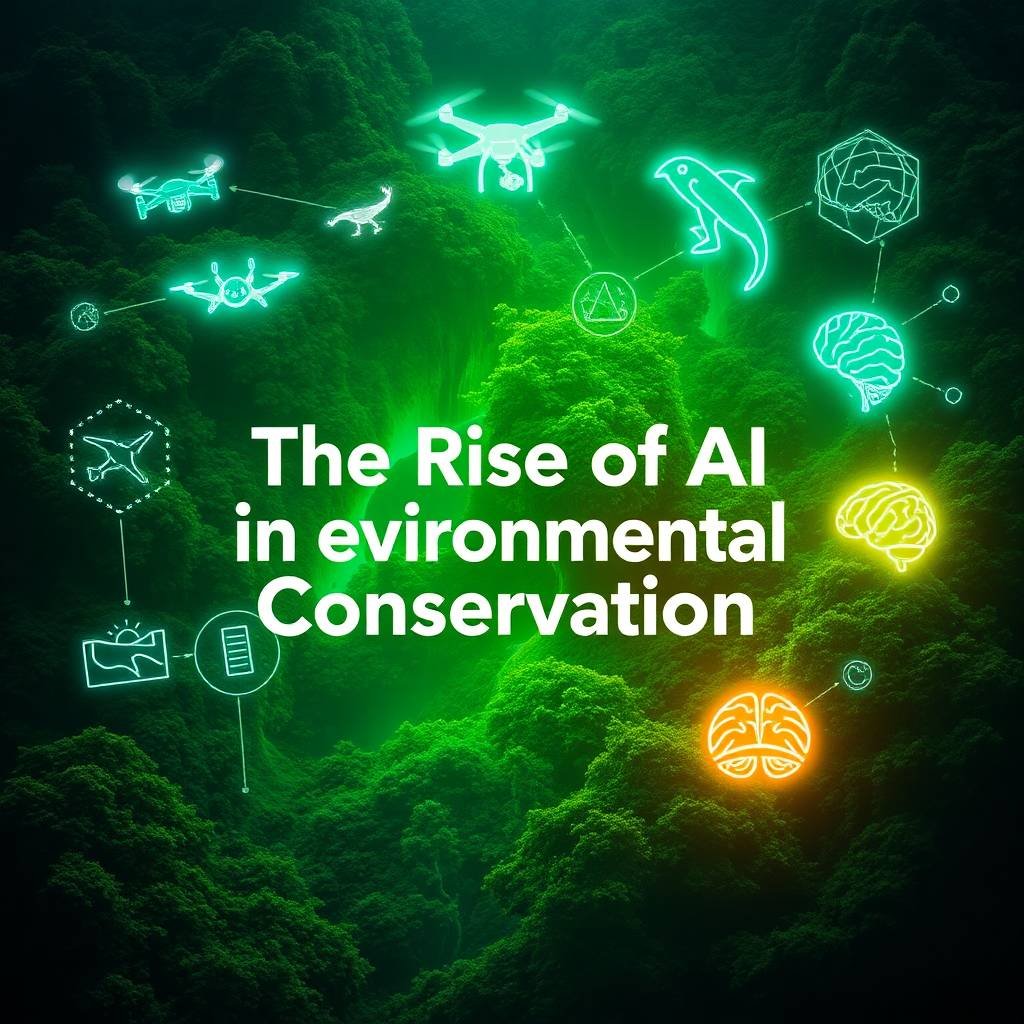Introduction
As climate change and environmental degradation continue to threaten ecosystems worldwide, the urgency for innovative solutions to preserve and protect our planet has never been greater. Artificial Intelligence (AI) is emerging as a formidable tool in the field of environmental conservation, offering advanced capabilities to monitor, protect, and restore natural habitats. By leveraging machine learning and data analysis, AI is transforming how we approach conservation, enabling more effective and efficient efforts.
Current Applications of AI in Environmental Conservation
Wildlife Monitoring and Protection
AI-powered systems are revolutionizing wildlife conservation by employing camera traps and drones equipped with machine learning algorithms to track and identify animal species. These systems can process large volumes of data to detect poaching activities, monitor animal movements, and assess population health. By providing real-time insights, AI enables conservationists to protect endangered species more effectively and respond swiftly to threats.
Environmental Data Analysis
AI enhances the analysis of environmental data through the processing of satellite imagery and climate models. By monitoring deforestation, pollution, and climate change impacts, AI-driven systems provide valuable insights that inform conservation strategies. These data-driven approaches allow researchers and policymakers to make informed decisions and implement targeted interventions to mitigate environmental threats.
Benefits of AI in Environmental Conservation
Enhanced Decision-Making
AI provides conservationists with robust, data-driven insights that support informed decision-making. By analyzing complex datasets, AI helps identify patterns and trends, allowing for targeted interventions that address specific environmental challenges. This strategic approach enables more effective conservation efforts, ensuring that resources are used where they are most needed.
Increased Efficiency and Accuracy
AI technologies automate labor-intensive tasks, freeing up conservationists to focus on strategic initiatives. This increased efficiency enhances the accuracy of monitoring efforts, ensuring that conservation actions are timely and resources are allocated effectively. AI’s ability to process vast amounts of data quickly and accurately allows for more precise conservation strategies, ultimately benefiting ecosystems and biodiversity.
Challenges and Considerations
Data Privacy and Ethical Concerns
The implementation of AI in environmental conservation raises important questions about data privacy and ethical use, particularly concerning the surveillance of natural habitats. It’s crucial to establish clear guidelines and ethical standards to ensure that AI technologies are used responsibly, respecting both wildlife and human communities.
Resource Requirements
Deploying AI solutions for conservation efforts requires significant resources and expertise. Organizations must invest in the necessary technology and training to effectively integrate AI into their programs. Ensuring access to these resources is essential for the successful implementation and sustainability of AI-driven conservation initiatives.
The Future of AI in Environmental Conservation
As AI technology continues to evolve, its role in environmental conservation is poised to expand significantly. Future advancements may include more sophisticated AI algorithms capable of real-time ecosystem monitoring, providing immediate insights into environmental changes and threats. This capability will enable rapid responses to emerging challenges, enhancing the resilience of ecosystems.
AI-driven reforestation efforts could utilize drones and robotic systems to plant trees autonomously, accelerating reforestation projects and restoring habitats more efficiently. Additionally, enhanced climate modeling powered by AI could offer more accurate predictions of climate change impacts, guiding global efforts to mitigate its effects and adapt to changing conditions.
Conclusion
AI is playing an increasingly vital role in environmental conservation, offering solutions that enhance monitoring, protection, and restoration efforts. While challenges remain, particularly in terms of ethics and resource allocation, the potential benefits of AI in this field are substantial. As technology continues to advance, embracing AI will be essential for conservationists seeking to safeguard our planet and ensure a sustainable future for generations to come.

